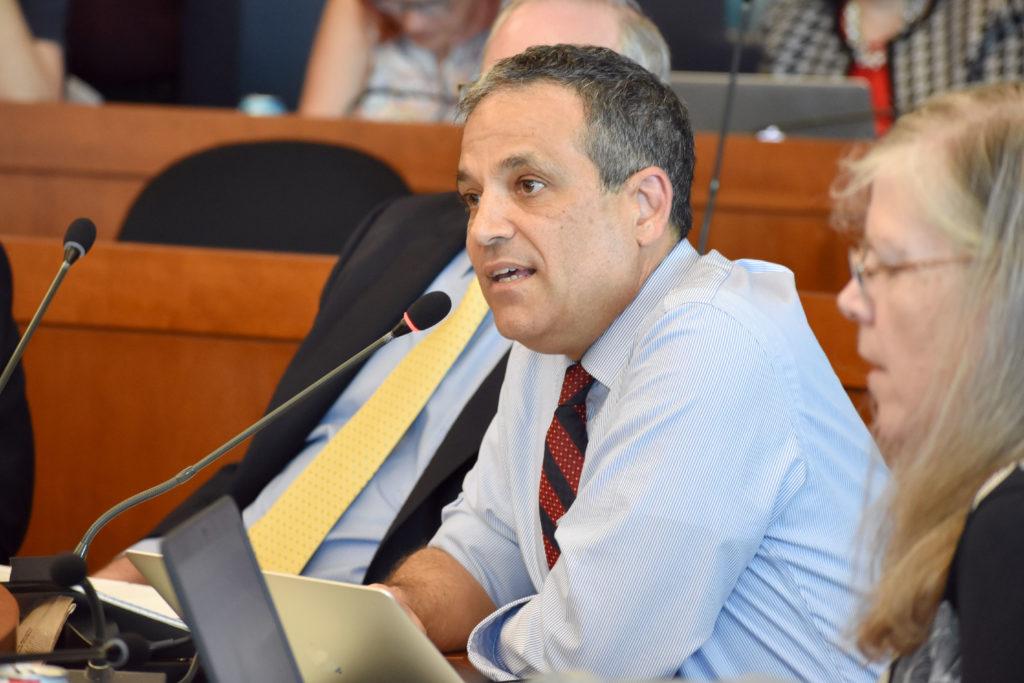The Board of Trustees approved several changes to the faculty code at a meeting Friday that altered promotion and tenure processes and institutionalized a review of the provost’s performance.
Trustees unanimously approved several changes in the code, a document that specifies professors’ rights and responsibilities, on subjects like paid family leave and the confidentiality of the tenure and promotion process. Officials said the changes, passed by the Faculty Senate this academic year, are the result of a successful collaboration between faculty and trustees over the past couple of years to revamp the code.
“I am happy to report that the board’s consultation with the faculty has been well-considered – it has truly been a collaborative effort and a strong display of our University’s commitment to shared governance,” said Madeleine Jacobs, the chair of the board’s Committee on Academic Affairs.
The changes, which go into effect on July 1, come four years after trustees passed three major amendments to the code that triggered a negative reaction from faculty, who said they did not have a say in the changes.
Provost Forrest Maltzman said one of the most significant changes the board voted on Friday was a resolution the Faculty Senate passed in February to enhance the confidentiality of job evaluations made during the tenure and promotion process. The policy will ensure recommendation letters and other materials involved in the decision-making process are kept confidential, he said.
“It helps ensure that there is a rigorous, analytical review before professors get promoted to tenure,” he said.
The board also approved a senate resolution – passed in April – that separated criteria for appointments, reappointments and promotions for non-tenure track specialized faculty members from those for regular faculty. Trustees also greenlighted two additional resolutions from the April senate meeting that transferred the authority to reappoint instructors past a fourth single-year term from the board to the provost and amended the grievance process for faculty who are denied tenure or promotion.
The board backed a resolution suggested by the senate in January to conduct a regular review of the provost every three years – similar to how the University’s deans are evaluated. Maltzman said the review of the deans has been a “good best practice,” and the feedback provided by faculty members for the review will help provosts understand what to prioritize moving forward.
Maltzman announced last month that he will step down as provost once officials select his successor.
The board also amended the code to provide specialized faculty with the same parental leave rights as regular faculty, according to a University release Friday.
“This year’s work in revising the code, and on updating policies that affect the university community, exemplifies the best of shared governance,” said Sylvia Marotta-Walters, the chair of the Faculty Senate’s executive committee, in the release.











